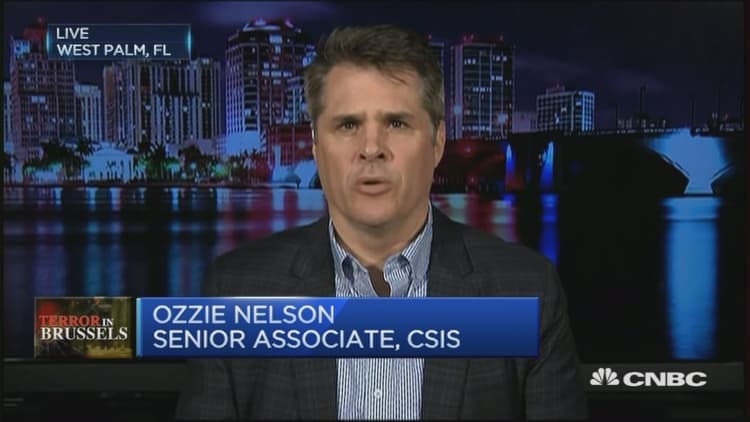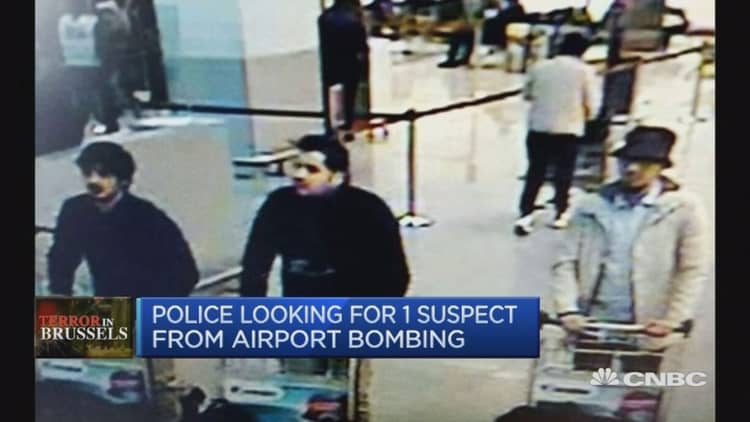


Europe must improve the regional sharing of intelligence to successfully combat the rise of homegrown militants, policy experts told CNBC a day after deadly explosions hit Brussels.
Global terrorist organization ISIS claimed responsibility for Tuesday's attacks that killed at least 30 people, the latest episode in the group's campaign of large-scale violence on the international stage.
Recent offensives in Paris and Jakarta indicate ISIS is increasingly relying on local fundamentalists, typically trained in ISIS strongholds within the Middle East, to execute suicide bombings and shootings in busy metropolitan areas.
"The key question here is closing the intelligence gap," said Kevin Rudd, former Prime Minister of Australia and president of the Asia Society Policy Institute.
While ISIS is being defeated militarily in Syria and Iraq, foreign fighters who travel to the militant hotbed are returning to their home countries at a "disturbing" rate of about 30 percent, he noted, resulting in the spate of recent attacks. That calls for European governments to step up information gathering on radicalized individuals, which means channeling more funds and manpower to counter-terrorism operations, the 58-year old explained.
"When members of law enforcement approach us as members of parliament or political leaders, seeking more direct powers, I believe we have to be very attentive to their responses as long as we have judicial and parliamentary oversight."
Rudd's comments are at the crux of a hot-button discourse about the encroachment on civil liberties should governments ramp up surveillance and detainment tactics in the global war on terror.
Rudd believes it's a necessary cost to bear.
"This is a not a normal set of circumstances, we've got to give our men and women in uniform and in the intelligence services the powers necessary to deal with this. This is no criticism of the Belgian government but a wake-up call to all of us who wrestle with this debate."
Others agree that European officials must direct more investment to counter-terrorism, despite strained finances for most countries in the region.
The fact that the perpetrator of December's Paris attacks was caught in Belgium four months after the event points to the overwhelmed state of European security officials, warned Ozzie Nelson, senior associate of homeland security and counter-terrorism at the Center for Strategic & International Studies (CSIS).
"There's significant issue of information sharing, not just within Belgium, but between European partners," he said, adding that countries must coordinate and communicate better instead of using limited resources to focus on protecting their own citizens.
"The underlying tension between the drive to communicate and the drive of nationalism will put Europe in crisis as long as the [terror] threat exists, and I expect this threat to continue for a number of years."
Throwing money at the problem isn't sufficient however; analysts say the European intelligence communist must refine their tactics.
Nations may seek to increase security at transportation hubs and borders as a knee-jerk reaction to Tuesday's events but that may not be the solution.
"We need to see a different approach towards attacking the problem, looking for terrorists as they're conducting their pre-operational surveillance instead of hardening targets and preventing them from attacking," explained Scott Stewart, vice president of tactical analysis at Stratfor.
For example, higher airport security may not deter terrorists as it just moves the intended target, i.e. people, to outside the building, he said.
Ultimately, the most effective weapons governments have at their disposal are sharing information, obtaining accurate intelligence, and working to change conditions supporting radicals, summarized Nelson.


